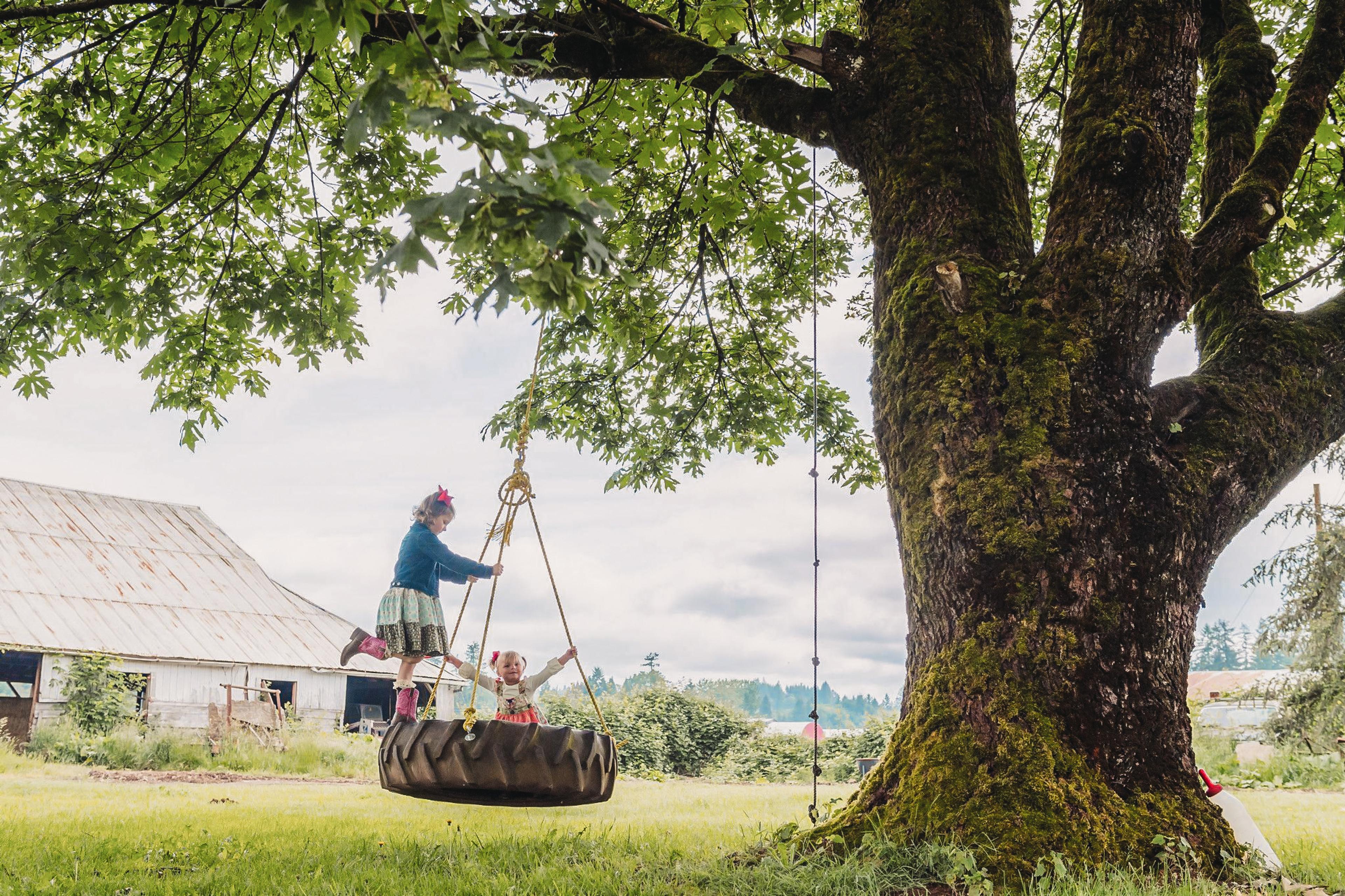
Farming
Who Really Cares if Family Farms Disappear?
Organic Valley has always been, and always will be, committed to providing an economic model that allows farmers to make a living. But why would it matter if family farms disappear? Who really cares if the food you eat comes from large conglomerates? We do, and Organic Valley farmers want to tell you why.
Take away family farms and you take away deep connections to animals, land, community, and small-town commerce. And that’s why in the 1980s, when family farms were dying, seven farmers got together in Wisconsin and set out to change that through providing organic food. From seven farmers to 1,800 farmers three decades later, Organic Valley continues to lead the comeback of the American family farm.
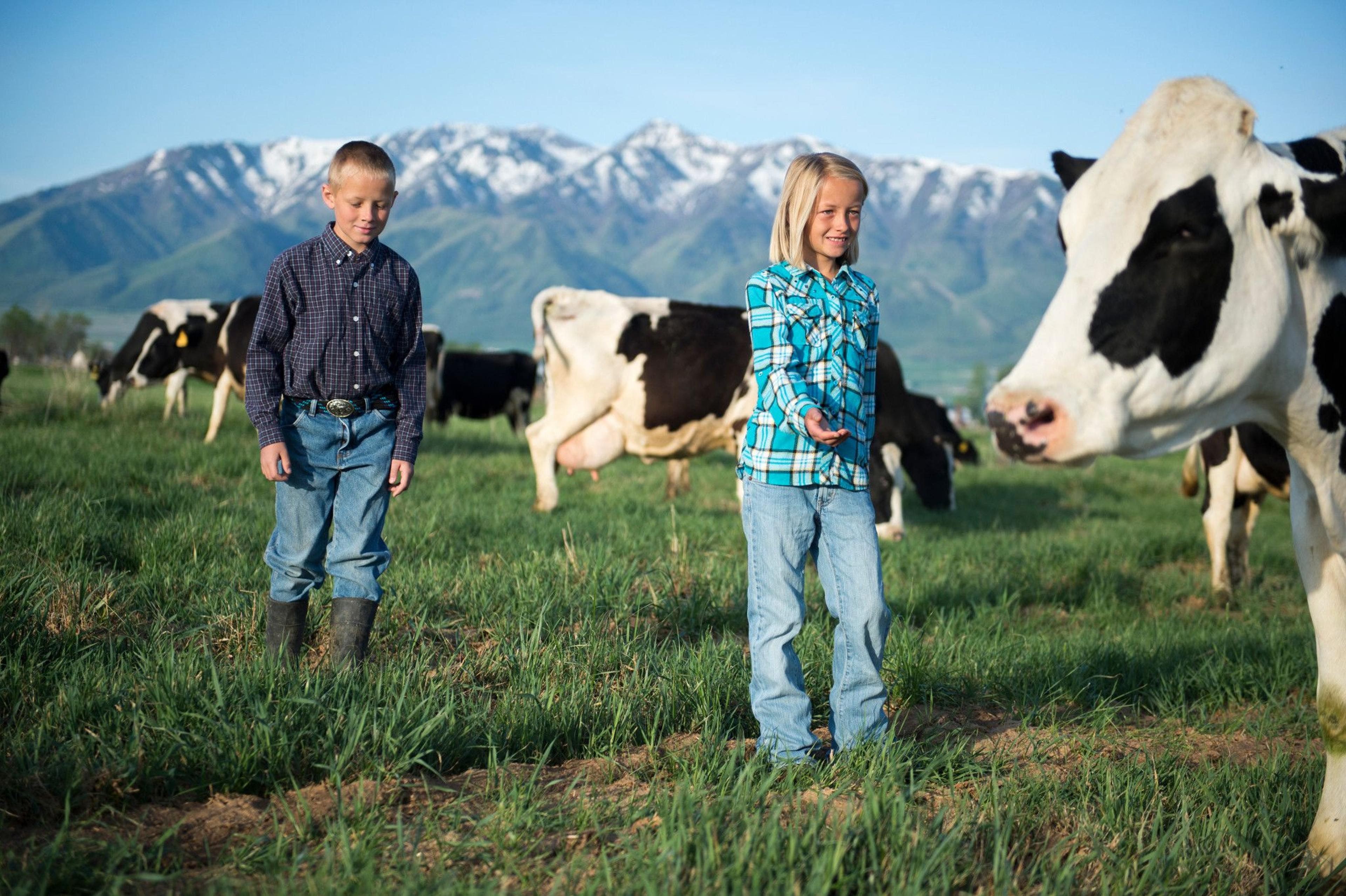
The Wangsgard family farm in Utah. ©David Nevala for Organic Valley
Farming as a Family
“Families are so important and farms help keep them together,” said Mike Wangsgard, an Organic Valley farmer from Utah.
The concept of being able to support a family by farming is important to the Van Tol family of Washington, too. It’s the sense of community and closeness; of having the entire family on the farm including the cows, which are like part of the family, Karen Van Tol said. The grandkids are excited when they can feed the calves, and neighbors enjoy visiting.
“By saving these little family farms you are saving a family-run operation,” said Maynard Mallonee, an Organic Valley farmer from Washington. A number of farms in his region are going on four generations of family ownership, including the Mallonee farm. His son is energized to take over the operation.
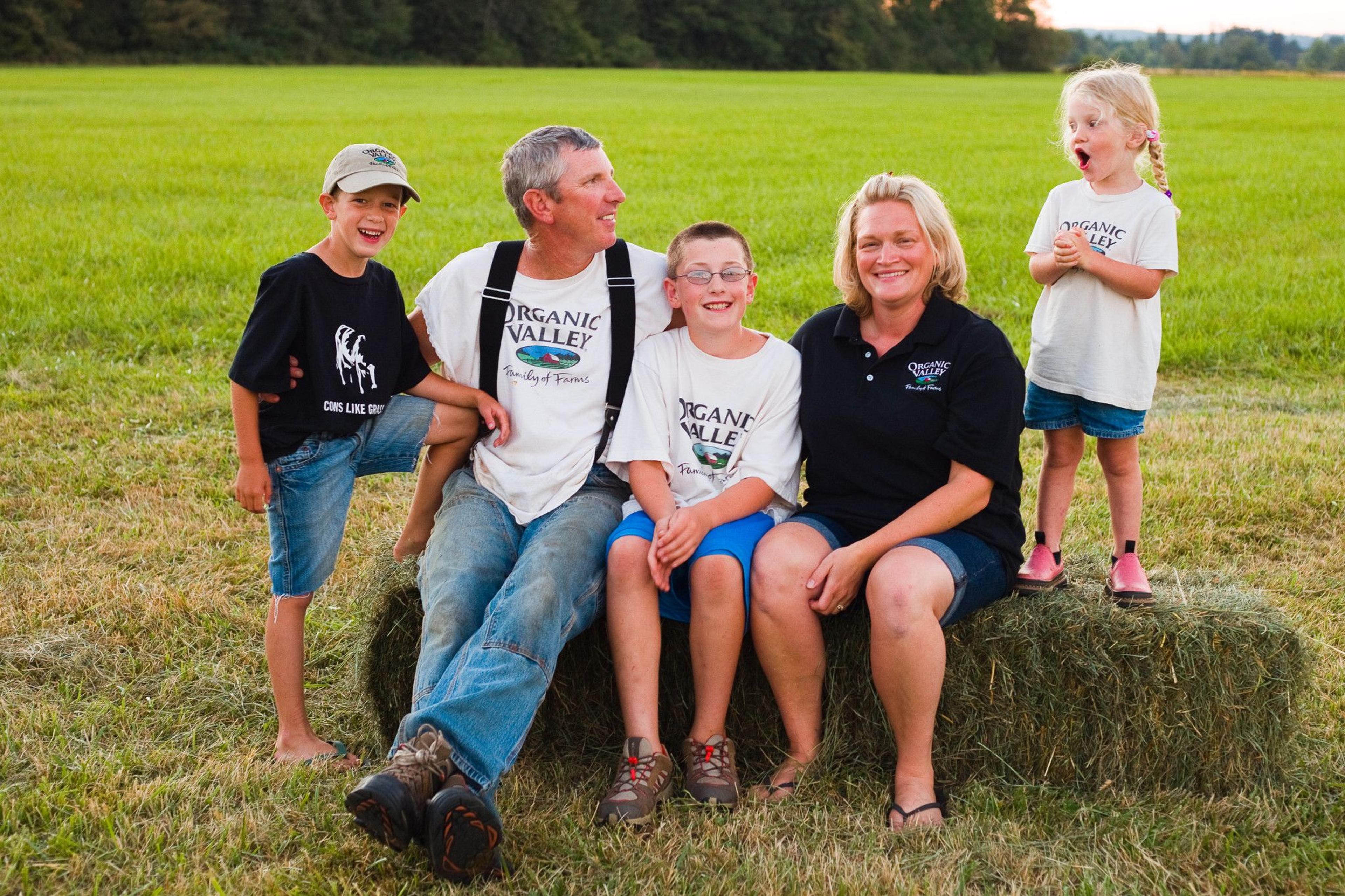
The Mallonee family of Washington. ©Anna Campbell for Organic Valley
The Difference Between Large and Small Farms
Family farms are in balance with the surrounding natural ecosystem, said Jake Schmitz, who works with Organic Valley farmers in Western United States.
“The nutrients in the manure from small herds grow the pasture and crops that feed those very cows that we milk, all while coexisting with the wildlife,” he said. “Farms that are too large dominate the landscape and alter natural flows of wild plants and animals, all while fouling the air, water, and soils.”
“Grounded farmers” adhere to eco-friendly practices. “Because you make your living from the earth, you are grounded into your farm,” Mallonee said, adding family farmers protect and preserve the ecosystem. “We take care of our animals, we take care of our soil—better pasture means cows eat a better diet, which means better products, and consumers will pay for the better-tasting products. Moving fences every day as I walk through a field, I know the land and see what will grow better and how we can get more from less.”
The Hoffner family of North Carolina sold the development rights to its land about 10 years ago. Though it drastically reduces the financial value of the land, it doesn’t matter. The sale is a safeguard that the farm will always be a farm no matter what, Chris Hoffner said. “It can’t be developed. Ever. Ever. Ever,” he said firmly. “Not tomorrow and not in 200 years.”
He values the organic lifestyle and the ability to give the cows what they deserve—fresh pasture and plenty of room to roam.
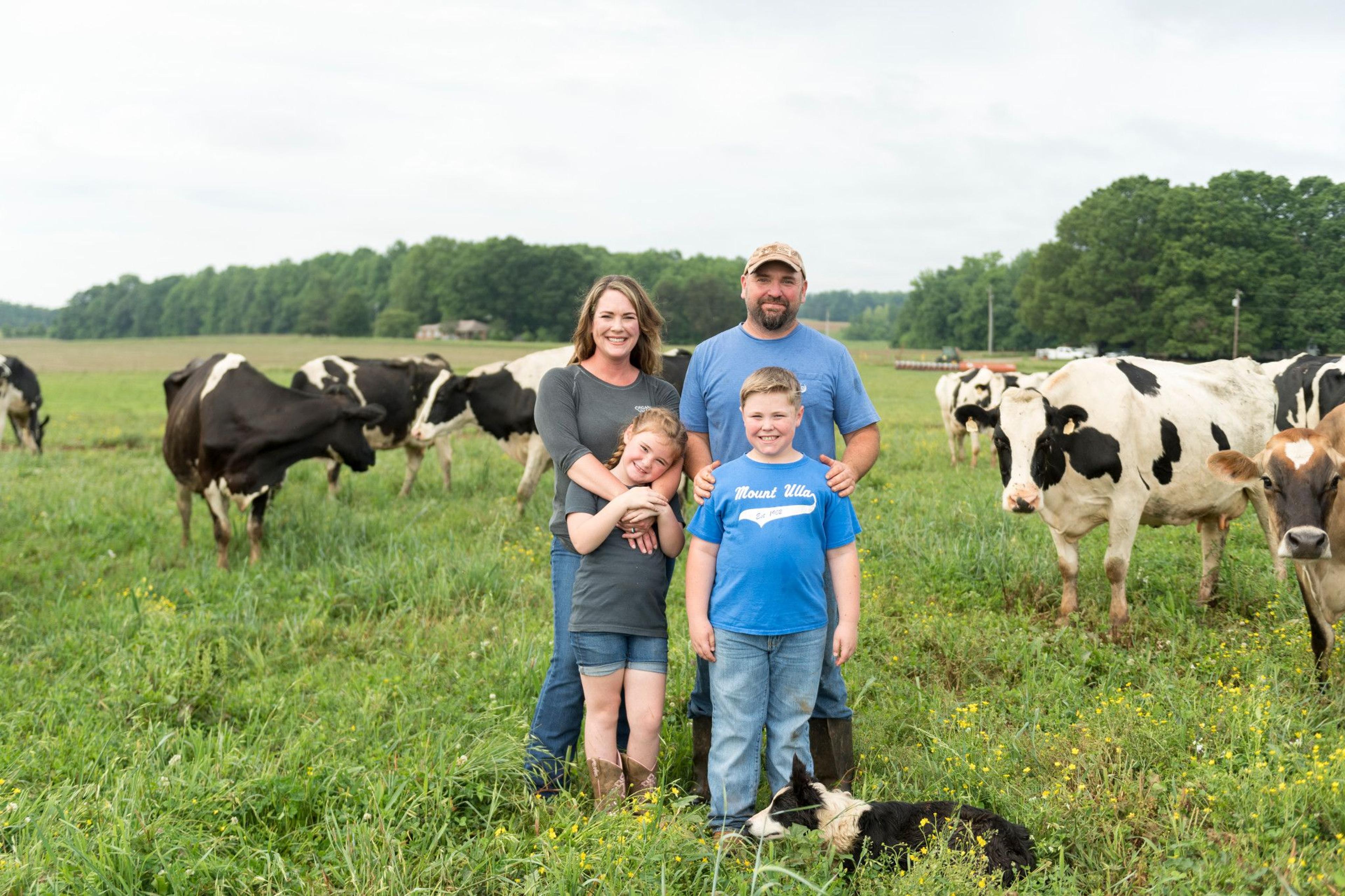
The Hoffner family of North Carolina.
“You lose control of the food supply if all us little guys are gone,” Hoffner added. When food was in short supply during the coronavirus pandemic, people were coming to his family for meat and products. “If all of us small guys are gone, the big guys, the corporations are not going to be able to do that.”
Organic Valley farmer Lyle Edwards of Vermont said he is fortunate there are only small dairies in his region, many being Organic Valley farms. These farms blend in with the landscape.
“A smattering of farms here and there is not as disruptive as a huge farm,” he said. Edwards is passionate about the survival of small, organic family farms. “Do you want all of your food coming from 10,000-cow dairies and huge operations, or do you want one 100-cow dairy in your neighborhood?”
He saw what happened when a farmer bought a number of farms to create a conglomerate. “You have trucks, and manure trucks driving by all the time, and dust … that’s not what you want.” Supporting a healthy ecosystem is priceless, he said.
Herds on Organic Valley farms are less than half the size of the average U.S. herd, often less than 100 cows, and Organic Valley’s farming practices have a measurable benefit for the planet.
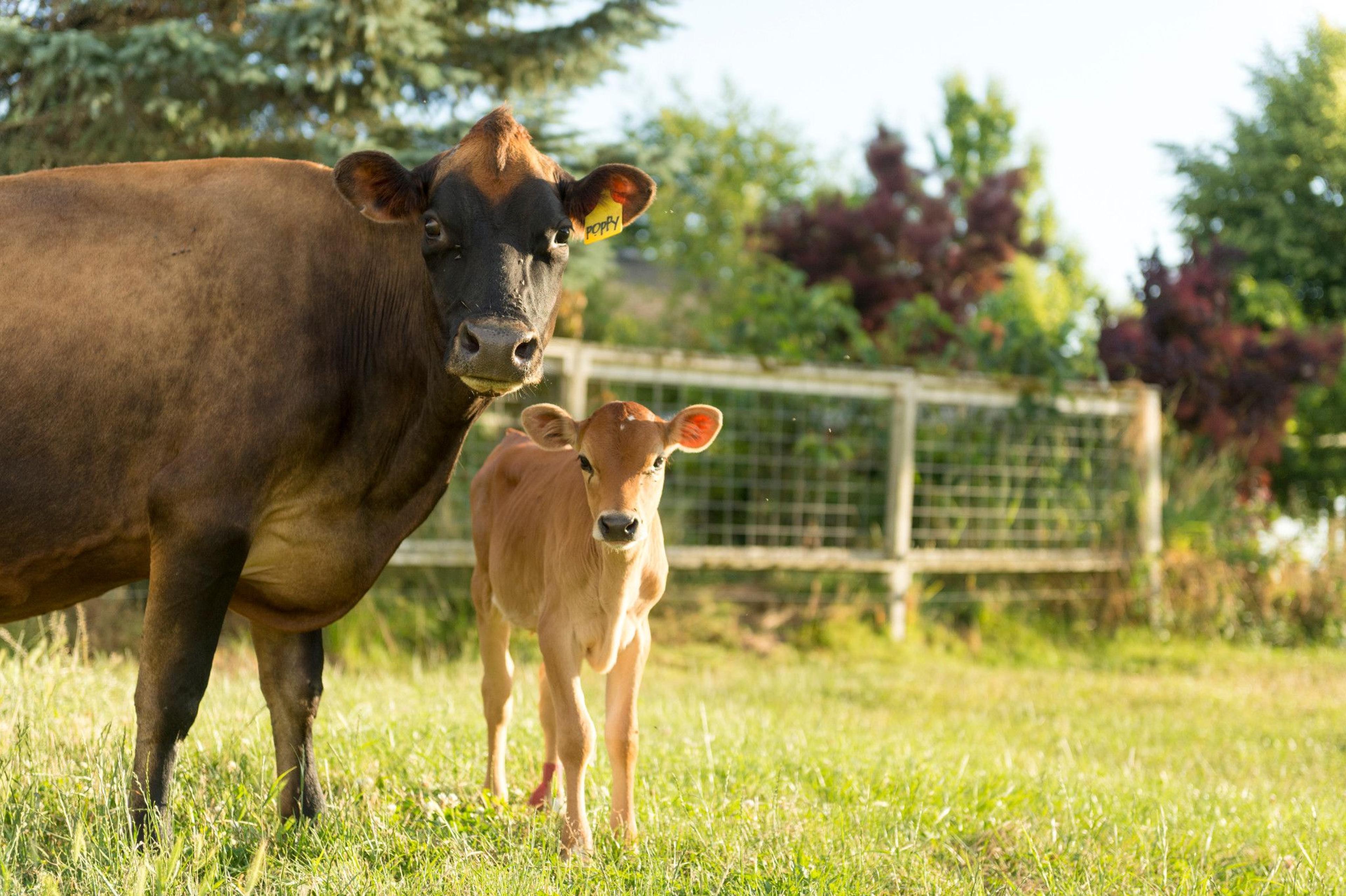
A cow and her calf at the Bansen farm in Oregon.
Farms Help Small Businesses Stay in Business
Amish and Mennonite communities are thriving in the area of Ohio where Jeff Miller farms. The rural towns have independent hardware stores and grocery stores. “It’s like a tree. A community is either growing or dying,” the Organic Valley farmer said. “Those businesses thrive because of small farms that support them."
Edwards agrees. “You have a community and support services and you keep small business, veterinarians, and farm implement dealers in business,” he said.
Businesses are not the only to benefit. It means jobs for rural residents and farm kids (who have a reputation for being hard workers).
There are six children in the Miller family. All are involved with the farm except the oldest, who purchased a small farm with her husband.
”There are a lot of things that make good employees but I’ve come to the conclusion that children raised on a farm who have the responsibility to do chores once or twice a day makes them into dependable employees,” Miller said. This ethic is all the more important as the country faces labor shortages, he added.
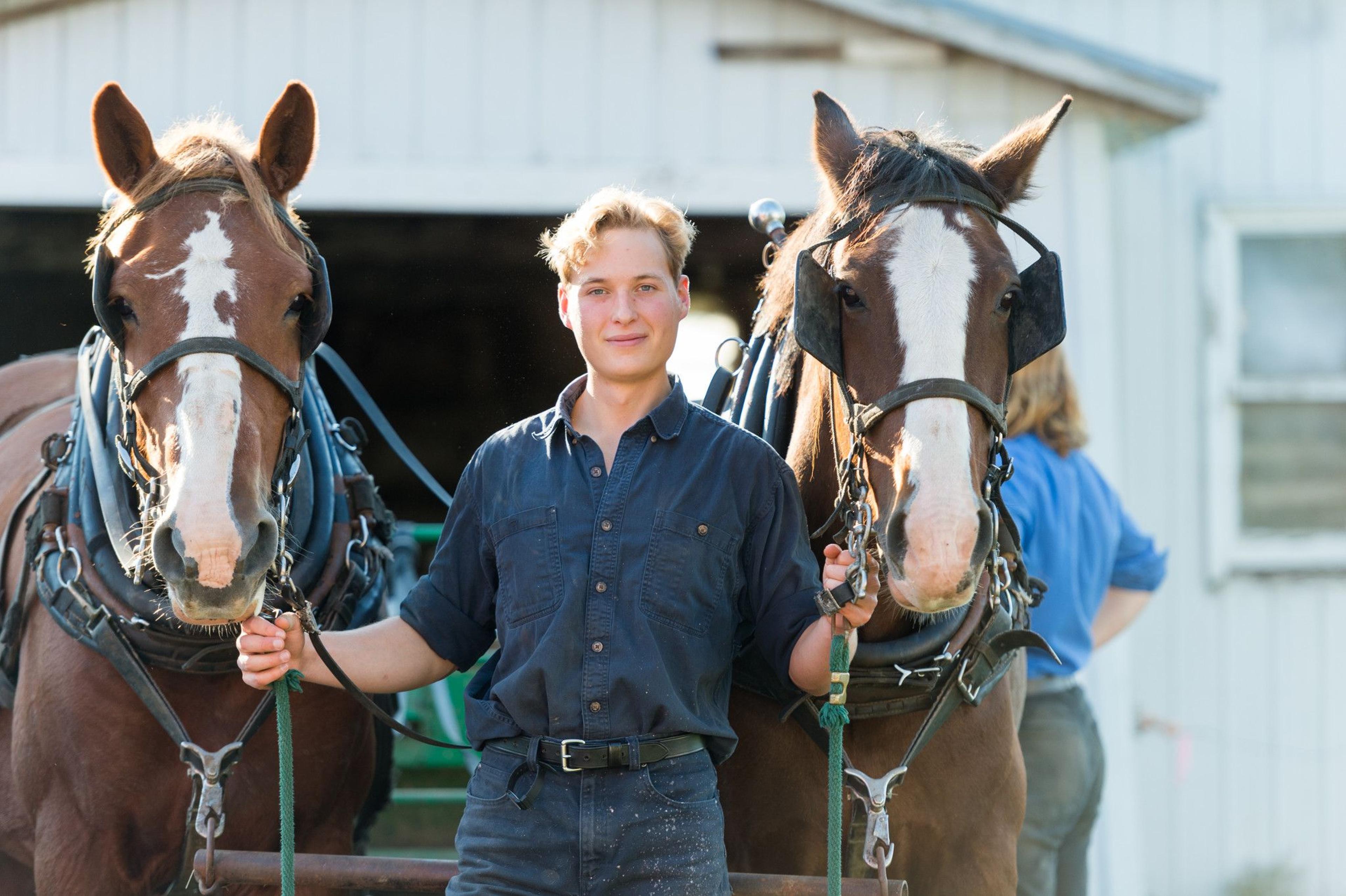
The Kent family farm in New York. ©David Nevala for Organic Valley
Farm Crisis Led to Downfall of Farms
Why was there such a massive decline in the number of farms in America? There was a crisis back in the 1980s, and some say there is still a crisis today—a farm crisis.
Land values had fallen roughly 30% on average from 1980-84, with the largest decreases seen in the Midwest. The crisis hastened the restructuring of the farm industry, accelerating the decline in the number of farms, according to the USDA Research, Education and Economics Information System.
The organic sector has grown immensely since Organic Valley’s founding and competition for organic products has increased. It’s OK if people choose organic products other than Organic Valley because we believe in the power of organic and the betterment of the earth. However, you should know you are doing something really good for yourself and small, independent farmers when you choose Organic Valley. Since 1988, our farmers have kept at least 440 million pounds of chemicals off the land. Seeing other farms follow suit is encouraging.
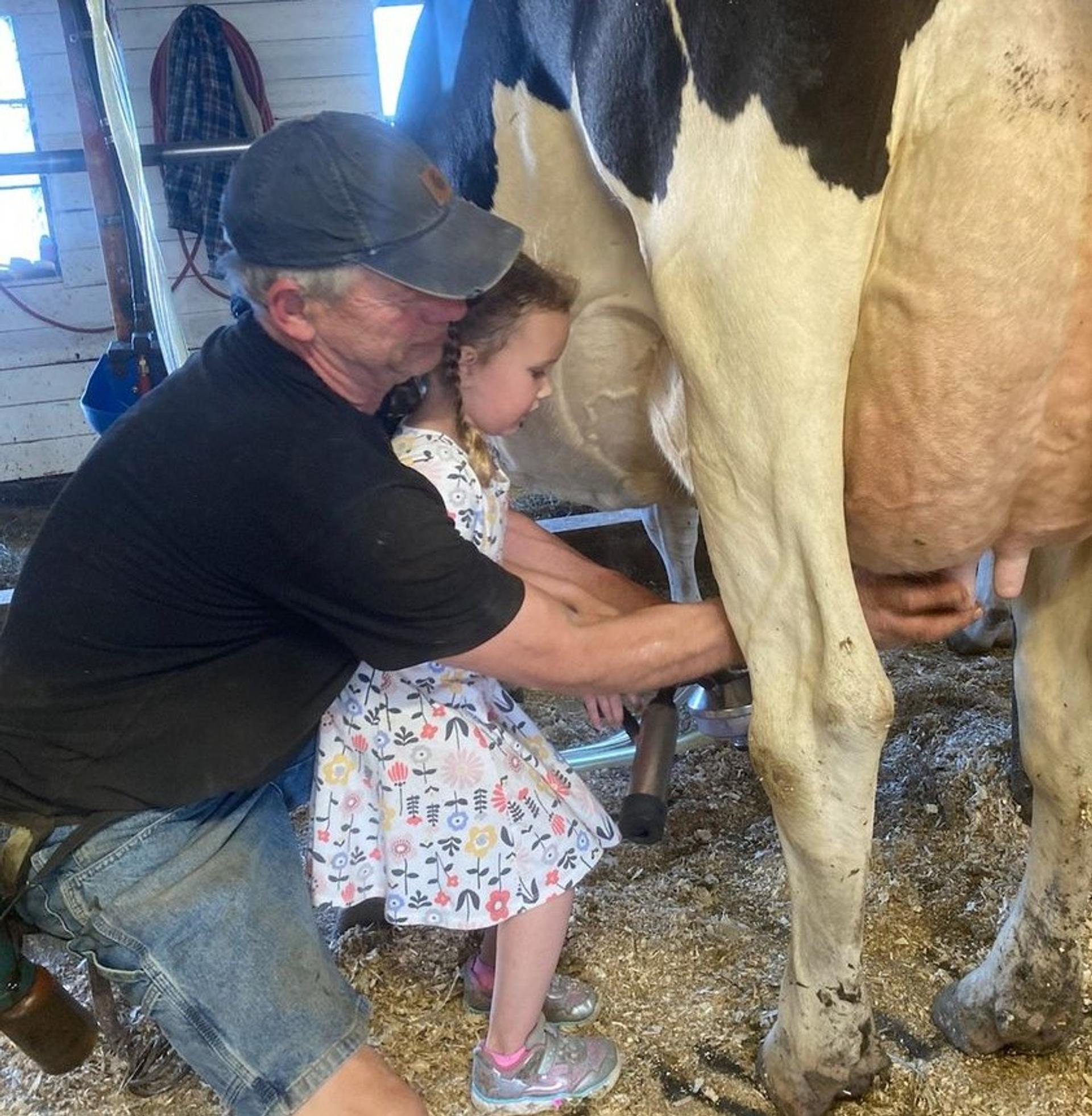
Organic Valley farmer Lyle Edwards teaches his granddaughter how to milk a cow on his Vermont farm.
There are Solutions for Farmers
Our farmer-owned cooperative continues to be driven by our mission, and we recently invited 90 farms to join the cooperative. These family farms had nowhere to market their milk after companies decided not to renew their contracts. As the largest farmer-owned organic cooperative in the U.S., Organic Valley will continue to fight for small family farms.
“It’s sad for me to drive through a farming community and everything is shuttered up except a couple houses,” Miller said. “You might see a tractor in the field, and you can tell that the farm once supported 20 families or more. Many people don’t want to farm because of the money. Once the parents pass, they sell the farm. Organic Valley provides that ability to make enough farm income to attract other generations to farm.”
With the support of consumers like you, Organic Valley will continue to encourage a farming future emphasizing ecologic diversity and economic stability, the same as it did 30-some years ago. We don’t want to see the continuous decline of family farms in America. We don’t want to see the cows sold and the sunlight fade from the barn as the doors gently close one final time.
An antique typewriter fanatic and chicken mom who treasures time outdoors admiring all that nature has to offer, Jennifer McBride is Rootstock’s editor. McBride spent 15-plus years as a journalist and newspaper editor before finding her niche with the nation’s leading organic dairy cooperative. Contact her at Rootstock@organicvalley.com.
Related Articles
- Tags:
- working together,
- farm life,
- land stewardship & conservation,
- organic & sustainable living,
- family & kids
















